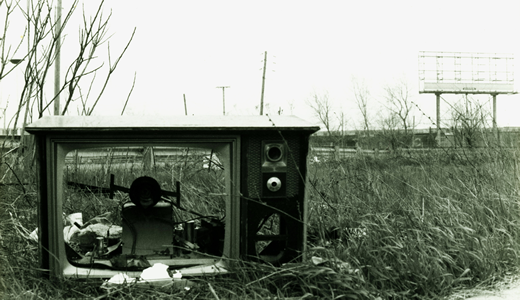We all know who wound up on Gilligan’s Island: Gilligan (of course); the Skipper too; the millionaire and his wife; the movie star; the professor and Mary Anne. But did you know that the chairman for the Federal Communications Commission made an appearance in every episode, too?
I didn’t either, until I read a fascinating little piece this weekend by fellow movie critic Nell Minow. Her father, Newton Minow, had become the FCC’s chairman in 1961. And on May 9 during his first major speech—to the National Association of Broadcasters, no less—he called the television landscape a “vast wasteland.”
Writes Nell Minow for Medium:
At the time Dad called on the broadcasters to do better, there were just three national television networks. There was no PBS, just a National Educational Television which was not even available in most of the country, including Washington, D.C., itself. My father told the broadcasters that as long as the airwaves were a scarce resource, they would have to do better to live up to their statutory obligation to serve the public interest, convenience, and necessity, especially with regard to coverage of news and programming for children.
The message didn’t sit well with everyone who heard it. The makers of Gilligan’s Island showed their disdain for the Newton’s “vast wasteland” quip by naming the show’s “tiny ship,” the S.S. Minnow, in Newton’s honor. Nell says that her father took it all in stride, and he still has an S.S. Minnow life preserver hanging on his office wall.
PBS showed up eight years later. And these days, the “airwaves” are far from, in Newton’s words, a scarce resource. Instead of three networks, we have hundreds of networks and streaming options—and more entertainment than we can possibly digest.
But it strikes me that Newton Minnow’s 1961 declaration is one worth thinking about today, too.
The vast wasteland that he spoke about included some television shows now considered classic: sitcoms such as the Andy Griffith and Dick Van Dyke shows. Westerns such as Gunsmoke and Bonanza. Creative experiments in sci-fi and horror, through The Twilight Zone and Alfred Hitchcock Presents. The Flintstones became the first prime-time television sitcom in history in 1960.
Certainly, Newton Minow was right: Educational programming and shows specifically made for children were in short supply. And yet, television historians would look at what was on the air and say the pickings, in retrospect, were pretty good. All the shows listed above boasted a far longer shelf life than perhaps their creators could’ve imagined. Many of them, especially The Andy Griffith Show, The Flintstones and The Twilight Zone, are now on their fourth generation of fans. Perhaps these shows were only oases in that vast wasteland, but they’re still visited today.
I imagine that Newton Minow would be rightly proud of the educational offerings on television today compared to 1961, and PBS isn’t the only one producing it. Whole families of networks are devoted to children’s programming now. And when you look at shows meant for older viewers … well, in terms of their ability to tell a riveting and sometimes profound story, we are living in perhaps television’s true Golden Age.
And yet, so many of these very same shows are burdened by blanche- and blush-worthy content, often with no discernable narrative purpose. Stories that would garner an R-rating if they were movies are aired or streamed, often unhindered, into families’ living rooms, bedrooms and, thanks to ubiquitous smartphones, jeans pockets.
In 1961, there wasn’t enough content for children. Now, unless a parent utilizes some savvy techno-gatekeepers, children can watch anything they want—be it Blue’s Clues or Breaking Bad. And parents might never know.
Our television landscape is almost unrecognizable compared to the one Newton Minnow was talking about 59 years ago. And yet, in a way, it’s much the same. In 59 years, a handful of the hundreds of shows released this year will be remembered. A few will be remembered as classics: The Andy Griffiths and Twilight Zones of our own time.
But most will be gone. Lost to time. Buried, like bleaching bones, in our own vast wasteland.






Recent Comments